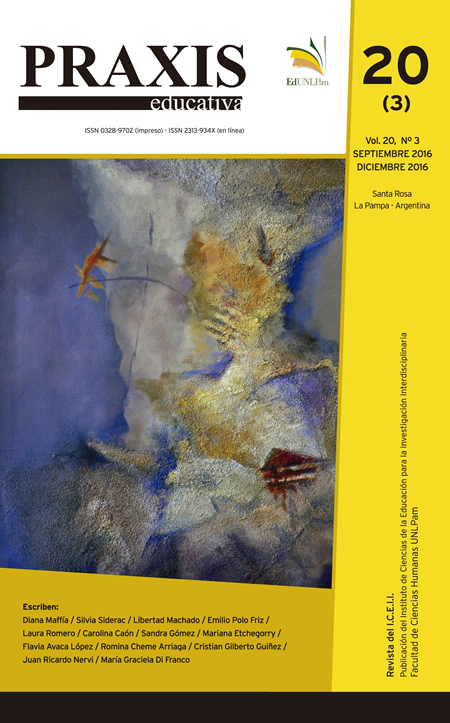Education: towards a new paradigm of knowledge
DOI:
https://doi.org/10.19137/praxiseducativa-2016-200302Keywords:
education, difference, recognition, dialogue, citizenshipAbstract
All educational technology, all pedagogy, has always explicit or implicit a philosophy of education, in order to determine the purposes of it, which will later lead to educational policies decided by the State. This article analyzes two paradigms in education: one conservative, the other progressive. Both of them hold education as a universal right, one from a “substitutionalist” universalism and the other from an “interactive” universalism. Only in the second one the differences can be thought as dismissing the hegemonic subject for which the recognition of the Other and the Other as an alter ego, mediated by narrative and dialogue is indispensable. This dialogue requires a comprehensive, understanding listening, that always reinforces the arguments of the other (he or she). This communication will be politically efficient if an inclusive moral contract exists. A contract that makes an invitation to tend bridges of listening as a precondition to collective construction.
Downloads
Downloads
Published
Issue
Section
License
Copyright Notice
Editorial Committee Educational Praxis Magazine:
I hereby declare that I am the author of the article titled (article name), that it is original and my own and that it was not previously published in any other format or medium. I declare to know that the magazine will not charge me any type of fee under any circumstances, nor will I receive any type of monetary compensation If it were accepted for publication in Educational Praxis, I authorize the aforementioned magazine to publish it digitally and to advertise it on its social networks.
If the work is published, I adhere to the Creative Commons license called "Attribution - Non-Commercial Share Alike CC BY-NC-SA", through which it is allowed to copy, reproduce, distribute, publicly communicate the work and generate derivative works, as long as when the original author is cited and acknowledged. This license has been used since September 2018. In 2016 CC BY NC ND 4.0 was adhered to; and in the years 2017 and 2018 (January-August) CC BY NC 4.0.
This CC BY-NC-SA Share Alike license does not, however, permit commercial use of the work. As an author, the journal may establish additional agreements for the non-exclusive distribution of the version of the work published in the journal, it allows me to self-archive the published articles, in their post-print version, in institutional, thematic repositories, personal web pages or any other relevant use. with the recognition of having been first published in this journal.
Educational Praxis adheres to DORA (Declaration on Research Assessment) signed in San Francisco, California, on December 16, 2012, and to the Declaration of Mexico (Joint Declaration LATINDEX - REDALYC - CLACSO - IBICT).















_(1)2.png)


3.png)











_(2).png)






2.jpg)









